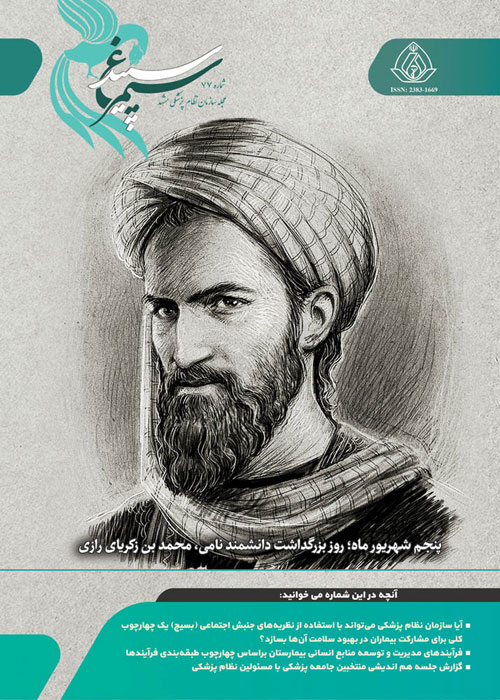Three-Year Study of Non-Attendance Programs Provided by the Re-Education Unit of Mashhad Medical Council (2014-2016)
Author(s):
Abstract:
Background
Continuing education is an effective learning method, and continuing education of the medical community is a key element in increasing the knowledge, skills, quality and effectiveness of the healthcare system and promoting professional competence. The learning resources at each level of education are reduced and forgotten over time. As technology progresses, a new volume of information is also added to different sciences each day. Therefore, given the challenges faced by participants in attendance education, non-attendance education is unavoidable. Regarding the importance of re-education of medical community groups and the importance of non-attendance courses, the aim of this study was to review the three-year non-attendance re-education program presented by the Medical Re-Education Council of Mashhad (2014-2016).Methods
This descriptive cross-sectional study was carried out on non-attendance re-education programs presented by Mashhad Medical Council during 2014-2016. The collected data included the proposed programs, year of holding, target groups and participants. In this study, the number of participants in each program was reviewed in different years. The current study data were analyzed in Excel 2013 software.Results
Most of the re-education programs developed and presented in 2016 were six non-attendance re-education programs, and the lowest of these programs were two non-attendance re-education programs in 2014. A total of 13218 people participated in non-attendance re-education programs during the years 2014-2016. The highest number of participants was in 2016 (9247 people) and the lowest was in 2014 (194 people). Most participants in non-attendance re-education programs were in general medical education (34.5%), pharmacy (25.8%) and general dentistry (21%), and fewer participants were in radiotherapy (0.04%), endocrine glands and metabolism (0.04%), emergency medicine (0.05%) and nuclear medicine (0.07%). Applicants of re-education programs participated mostly in biotechnology programs (45.4%), biological products (40.3%), and familiarity with diabetes and treatment (8.5%).Conclusions
Organizational support in order to increase access to information and communication is a necessitycontinuous education is one of such factors. Other topics such as health management, drug interactions and their side effects, ethics and addiction should be included in re-education programs. In addition to conventional methods, the use of new technologies and social media is essential in order to improve re-education methodssuch as e-learning and the use of smart devices. Keywords:
Language:
Persian
Published:
Journal of Mashhad Medical Council, Volume:21 Issue: 1, 2017
Pages:
2 to 5
magiran.com/p1727607
دانلود و مطالعه متن این مقاله با یکی از روشهای زیر امکان پذیر است:
اشتراک شخصی
با عضویت و پرداخت آنلاین حق اشتراک یکساله به مبلغ 1,390,000ريال میتوانید 70 عنوان مطلب دانلود کنید!
اشتراک سازمانی
به کتابخانه دانشگاه یا محل کار خود پیشنهاد کنید تا اشتراک سازمانی این پایگاه را برای دسترسی نامحدود همه کاربران به متن مطالب تهیه نمایند!
توجه!
- حق عضویت دریافتی صرف حمایت از نشریات عضو و نگهداری، تکمیل و توسعه مگیران میشود.
- پرداخت حق اشتراک و دانلود مقالات اجازه بازنشر آن در سایر رسانههای چاپی و دیجیتال را به کاربر نمیدهد.
In order to view content subscription is required
Personal subscription
Subscribe magiran.com for 70 € euros via PayPal and download 70 articles during a year.
Organization subscription
Please contact us to subscribe your university or library for unlimited access!


